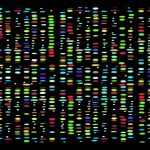
How Agarose Resins Enhance Biomolecule Purification?
The bioprocessing industry continues to see innovative advancements in the purification of biomolecules, with agarose resins emerging as a key component for efficient and reliable separation techniques.
Known for their high purity, biocompatibility, and customizable properties, agarose-based resins are increasingly favored in laboratory and industrial settings.
Agarose, a natural polysaccharide derived from seaweed, forms the backbone of agarose resins used in chromatography, especially gel filtration and affinity purification.
These resins provide a gentle yet effective means of isolating proteins, nucleic acids, and other biomolecules, essential for therapies, diagnostics, and research applications.
Their porous structure allows for high flow rates and excellent resolution, making them suitable for large-scale bioprocessing.
The global demand for high-quality biomolecules has driven the growth of agarose resin applications. In particular, the purification of monoclonal antibodies, gene therapy vectors, and recombinant proteins has benefitted from these versatile resins.
As biopharmaceuticals continue to expand, the role of agarose in scalable, cost-effective purification processes becomes even more critical.
Manufacturers are investing in R&D to develop novel agarose formulations tailored for specific applications, aiming to meet the rigorous standards of the biotech and pharmaceutical industries.
Global BioIngredients brings to this field decades of manufacturing experience in the production of agarose powders and beads, offering types and grades suited to a wide variety of purposes.


